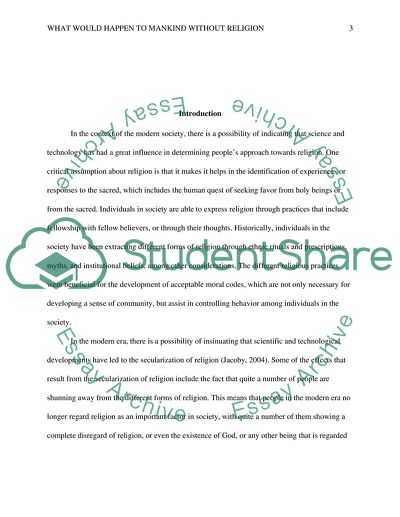Cite this document
(Secularism: The Hidden Origins of Disbelief Research Paper, n.d.)
Secularism: The Hidden Origins of Disbelief Research Paper. Retrieved from https://studentshare.org/religion-and-theology/1809239-what-would-happen-to-mankind-without-religion
Secularism: The Hidden Origins of Disbelief Research Paper. Retrieved from https://studentshare.org/religion-and-theology/1809239-what-would-happen-to-mankind-without-religion
(Secularism: The Hidden Origins of Disbelief Research Paper)
Secularism: The Hidden Origins of Disbelief Research Paper. https://studentshare.org/religion-and-theology/1809239-what-would-happen-to-mankind-without-religion.
Secularism: The Hidden Origins of Disbelief Research Paper. https://studentshare.org/religion-and-theology/1809239-what-would-happen-to-mankind-without-religion.
“Secularism: The Hidden Origins of Disbelief Research Paper”, n.d. https://studentshare.org/religion-and-theology/1809239-what-would-happen-to-mankind-without-religion.


